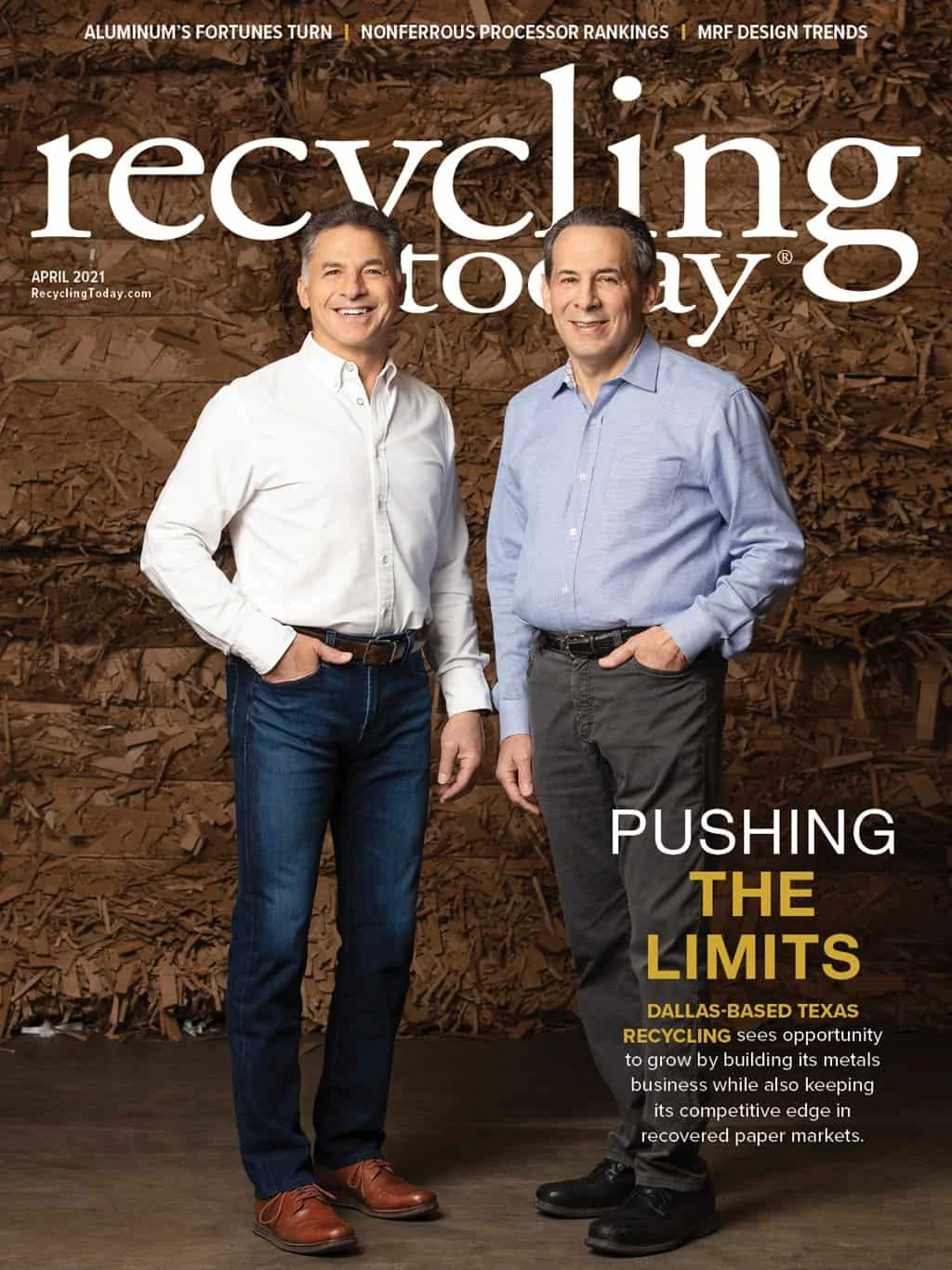Demand and pricing remain healthy for many grades of plastic scrap, says Vince Gupta, president of Prime Plastic Products Inc., Vista, California. He describes demand for the polyolefin grades he primarily deals in as being “enormously strong” and “strongly outstripping supply.”
Gupta says all the polyethylene grades he deals in “are on fire” in terms of demand and pricing. In fact, he adds, “All commodity grades have taken off.”
Keng Baloco-Wong, who manages product sales and logistics for the material recovery facilities (MRFs) operated by Athens Services, headquartered in City of Industry, California, also notes the strong demand for plastic scrap. “We have seen an increase recently in domestic demand for postconsumer grades,” she says. “An uptick in price has followed, which is refreshing. For the first few months of the pandemic, demand and pricing both were depressed,” she adds.
”We are able to sell all of our material in North America, but this summer and fall it was very difficult to move PET, despite public commitments by brands to purchase more recycled content.” – Miriam Holsinger, vice president of operations and business intelligence, Eureka Recycling
Scott Saunders, general manager of the high-density polyethylene (HDPE) and polypropylene (PP) reclaimer KW Plastics, Troy, Alabama, says supplies of HDPE and PP scrap have tightened as collections were delayed by the winter weather that affected much of the country in mid-February. Demand for postconsumer resin also has risen in light of the weather-related shutdowns that affected the petrochemical sector in Texas, reducing supplies of virgin plastics and increasing prices.
In addition to the mid-February weather, ongoing issues with trucking and shipping container availability are hindering the movement of material.
“Movement has been a challenge the past few months for both export and domestic,” Baloco-Wong says. “We are dealing with equipment shortages, congestion and vessel delays,” she says of ocean shipping.

She says export demand is strong. “Taiwan and Korea are active buyers; however, Malaysia is the strongest market in Southeast Asia. There are also smaller outlets in South America, but Southeast Asia is the strongest market.”
Miriam Holsinger, vice president of operations and business intelligence with Eureka Recycling, which operates a MRF in Minneapolis, says, “We are able to sell all of our material in North America, but this summer and fall it was very difficult to move PET (polyethylene terephthalate), despite public commitments by brands to purchase more recycled content.”
While pricing for recycled PET has been high, it has not helped reclaimer CarbonLite Holdings LLC, headquartered in Los Angeles. That company, which has facilities in Riverside, California; Dallas; and Reading, Pennsylvania, announced March 8 that it filed a voluntary petition for relief under Chapter 11 of the Bankruptcy Code. CarbonLite cites pressures related to the coronavirus pandemic, including temporary production slowdowns caused by employee illness and the low price of virgin plastic relative to recycled PET, as factors.
Some suppliers to the company have said it has been slow to pay prior to 2020, however.
“With CarbonLite out of the market, there will be a temporary disruption in California and Texas in the movement of PET in surrounding areas,” Baloco-Wong says. “However, we are seeing a strong demand overall for PET, both overseas and in other domestic outlets.”

Explore the April 2021 Issue
Check out more from this issue and find your next story to read.
Latest from Recycling Today
- Orion ramping up Rocky Mountain Steel rail line
- Proposed bill would provide ‘regulatory clarity’ for chemical recycling
- Alberta Ag-Plastic pilot program continues, expands with renewed funding
- ReMA urges open intra-North American scrap trade
- Axium awarded by regional organization
- Update: China to introduce steel export quotas
- Thyssenkrupp idles capacity in Europe
- Phoenix Technologies closes Ohio rPET facility





